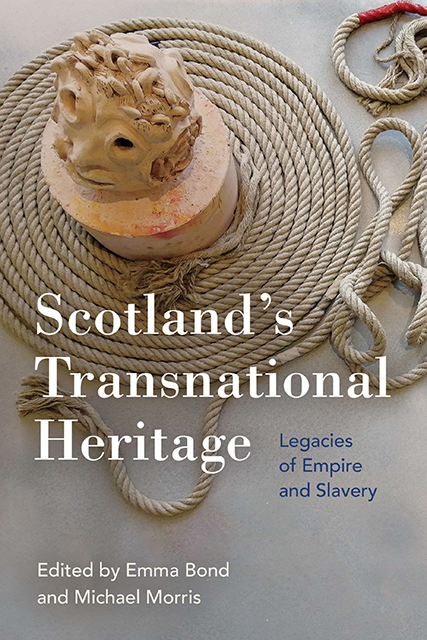Book contents
- Frontmatter
- Contents
- List of Figures
- Notes on Contributors
- Acknowledgements
- Foreword: Fostering Recognition under the Luxury of Amnesia
- Chapter 1 An Introduction to Scotland’s Transnational Heritage: Sites, Things and Time(s)
- Part I Transnational Sites
- Part II Transnational Things
- Part III Transnational Time(s)
- Afterword: Building Solidarity: Moving Towards the Repatriation of the House of Ni’isjoohl Totem Pole
- Index
Chapter 5 - Reflections on Leading Black History Walking Tours (Edinburgh)
Published online by Cambridge University Press: 25 October 2023
- Frontmatter
- Contents
- List of Figures
- Notes on Contributors
- Acknowledgements
- Foreword: Fostering Recognition under the Luxury of Amnesia
- Chapter 1 An Introduction to Scotland’s Transnational Heritage: Sites, Things and Time(s)
- Part I Transnational Sites
- Part II Transnational Things
- Part III Transnational Time(s)
- Afterword: Building Solidarity: Moving Towards the Repatriation of the House of Ni’isjoohl Totem Pole
- Index
Summary
The way in which I reflect on my heritage and life experiences affects the approach I take to and the results of my research, as well as the way in which I structure, lead and develop my Black History walking tours of central Edinburgh. The honesty required to be clear about one’s own positionality takes work, and in many cases, reliving and re-evaluating some painful experiences through personal connections to the research. Memories of specific historical injustices travel across the generations; through extended family networks and in our countries and wider communities of origin. This could be a form of intergenerational transmission of a consciousness of trauma, or from continuing to absorb, analyse and process these stories while simultaneously, iteratively refashioning them with a deeper, wider, more nuanced and interconnecting global context. True reflection is needed on how our cultural influences affect our awareness of our own processes of knowledge construction, and particularly our choices of historiography. It must include the acknowledgement of the deep emotional impact of the layering of new knowledge; and perhaps re-evaluating where we have stood in our own most intimate of relationships that carry painful and dysfunctional legacies from the violence and psychopathy of the period of the Transatlantic Slave Trade.
‘Fascinating’ is always the word that one of the white attendees will use during or after a walk, and every time it ruffles something inside me. It evokes memories of people pausing to peer at us in the street when we went out as a mixed race family in the 1970s and 1980s. Fascinating, of course, has its flip side. School friends and their families would scream racial slurs at the TV while we watched it together at their house, proudly host National Front conferences or find a way to tell me how much they ‘loved South African apartheid’. Some middle-class racism can be a little more subtle; parents refusing to touch my mother’s outstretched hand at school events, even though, or maybe because, she was dressed in the finest silk suits from Asia, pearls and soft Italian leather shoes.
- Type
- Chapter
- Information
- Scotland's Transnational HeritageLegacies of Empire and Slavery, pp. 70 - 86Publisher: Edinburgh University PressPrint publication year: 2023



